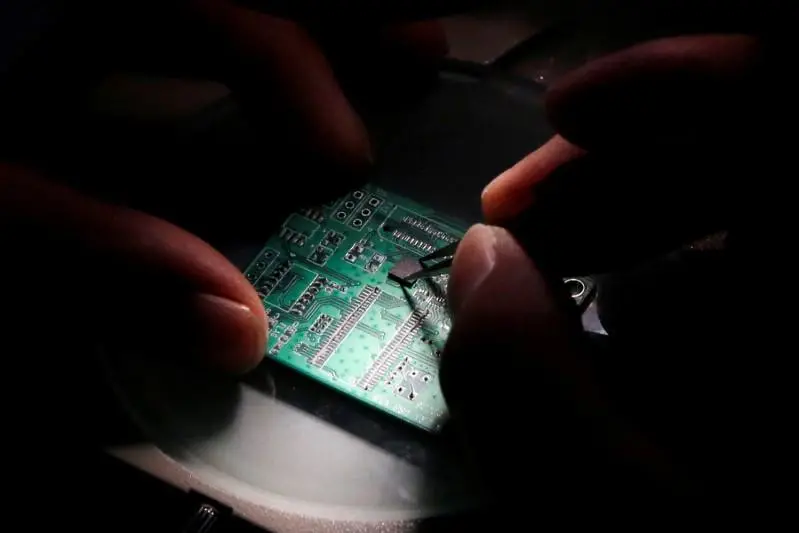PHOTO
HONG KONG - China's chip giant serves the purposes of both nationalists and economic reformers. Semiconductor Manufacturing International received a boost from state funds ahead of a planned debut on Shanghai's new STAR board. The firepower reinforces Beijing's push for tech self-sufficiency. SMIC's Cayman Islands structure will also test new listing rules.
The $13 billion home-grown semiconductor champion is Beijing's answer to Taiwan’s $260 billion TSMC. Like its larger rival, SMIC is a contract chipmaker for customers including Qualcomm and Huawei, the handset and telecoms equipment maker blacklisted by the United States on national security concerns. Yet SMIC is still years behind rivals technologically. The company only just started manufacturing its most advanced generation of 14 nanometer chips last year, more than four years after TSMC, Intel and Samsung Electronics debuted their own respective versions. The urgency to narrow this gap has intensified as U.S. President Donald Trump’s administration pushes to cut Huawei off from American technology. Just days ago, the U.S. Commerce Department said foreign companies using American chip-making equipment will need a license before supplying Huawei. The latter, a major TSMC customer, has recently started to shift some of its orders to SMIC.
That may explain Beijing's plans to throw money at SMIC. On Friday, the Hong Kong-listed company announced a $2.3 billion state investment into one of its chip-making subsidiaries, which will result in a near-sixfold increase in the unit's manufacturing capacity. The company last week also hiked up its capital expenditure budget for 2020 by more than a third to $4.3 billion. This comes ahead of SMIC's planned debut on Shanghai's new tech-focused STAR board, which operates under more relaxed listing requirements and pricing rules.
Putting SMIC on STAR serves other purposes besides technology independence. By giving the board an anchor tenant, it will validate the liberalisation package built into the initiative. SMIC will also likely be the first foreign-domiciled company to list on primary mainland exchanges. For years, officials have tried in vain to lure the country's technology champions, most of which also use SMIC’s Cayman Islands company structure, away from New York bourses. This will serve that goal too.
CONTEXT NEWS
- China's Semiconductor Manufacturing International Corp (SMIC) on May 15 announced a $2.3 billion investment into a chip-making subsidiary from four state-backed funds.
- As part of the deal, SMIC's stake will decrease from 50.1% to 38.5%. The unit, SMSC, plans to increase its manufacturing capacity from 6,000 wafers a month to 35,000 wafers a month after the investment. It will continue to be a subsidiary of SMIC.
- Separately, SMIC is planning an initial public offering on Shanghai's Sci-Tech Board, or STAR board.
- The Hong Kong-listed company will issue 1.7 billion A-shares, equivalent to 25% of its enlarged share capital. Based on its stock's last closing price on May 5, when it first announced the plans, SMIC may raise $3.3 billion.
- The deal will be the first so-called red chip, mainland companies domiciled overseas, to list on mainland markets after regulators in April lowered the market capitalisation minimum for technology companies to 20 billion yuan ($2.82 billion) from the earlier 200 billion yuan threshold.
(Editing by Pete Sweeney and Sharon Lam)
© Reuters News 2020





















